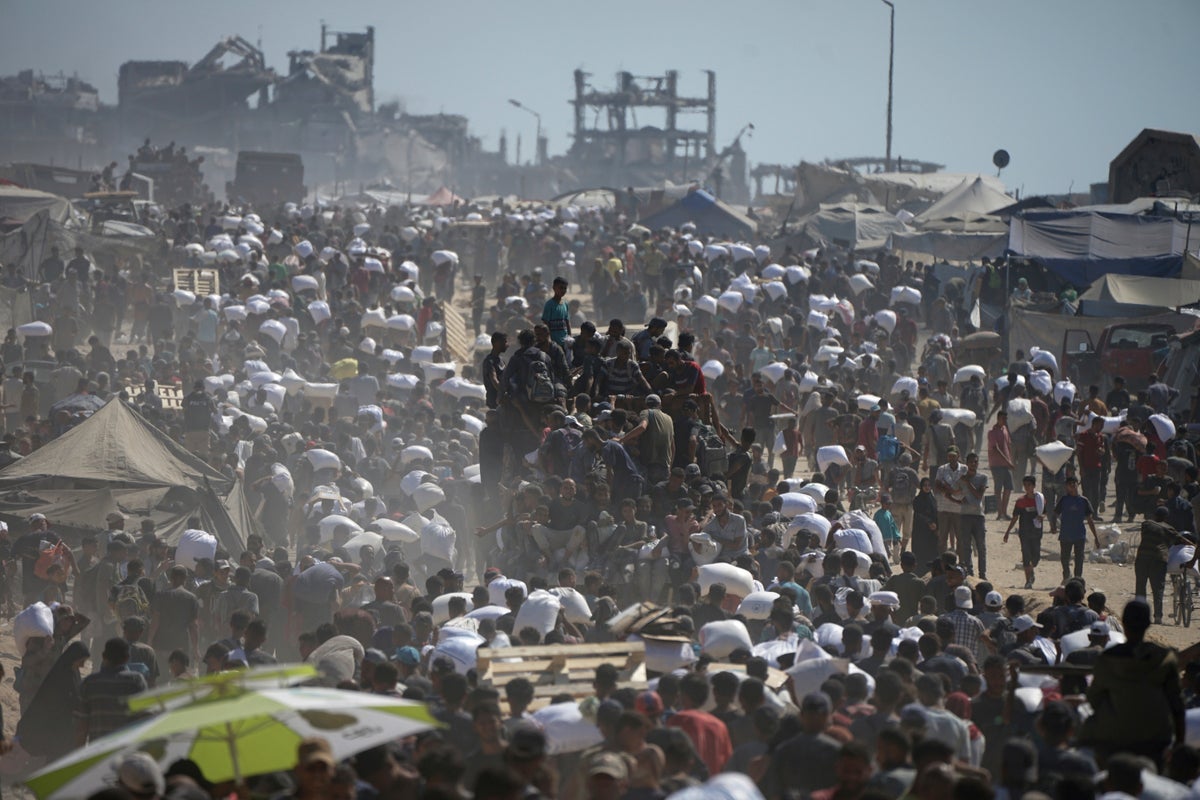
Israel has said it is prepared to resume ceasefire talks with Hamas over the nearly two-year war, but only on terms that guarantee the release of all hostages and the disarmament of the militant group.
Prime Minister Benjamin Netanyahu said on Thursday that Israeli negotiators would return to the table once a venue for the talks is agreed, in response to a proposal Hamas accepted earlier this week.
The plan, proposed by Egypt and Qatar, would involve a 60-day truce, the release of 10 living hostages and the return of 18 bodies, in exchange for the release of 200 long-serving Palestinian prisoners.
The talks also suggest a permanent end to the war that has destroyed the besieged enclave, according to Donald Trump’s envoy Steve Witkoff.
But Netanyahu has insisted that Israel will not agree to a deal that leaves any hostages behind, with Israeli officials estimating that of 50 people still held in Gaza, around 20 remain alive.
Why Israel has rejected the latest proposal
Netanyahu said his government was in the “decision-making phase” and would push ahead with negotiations, but only within parameters acceptable to Israel.
His comments were the first direct response to the Egypt-Qatar proposal, which Hamas accepted on Monday.
The deal would see the phased release of hostages and Palestinian prisoners, limited Israeli troop withdrawals and increased aid deliveries, with the United Nations and the Red Cross involved in overseeing humanitarian access.
Despite international pressure, Israel has not accepted the plan Hamas signed off on.
Netanyahu has insisted that any agreement must include the release of all hostages, not just a portion, before the war ends.
The Israeli leader is also balancing pressure from far-right members of his coalition, who oppose a ceasefire and instead want the military to continue its offensive, with some calling for a full annexation of Gaza.
Meanwhile, Israel’s military has called up 60,000 reservists – likely in preparation for its major new assault on Gaza City.
This mobilisation, which could take weeks, suggests Israel is keeping military options open even as it entertains further negotiations.
Why Israel is attacking Gaza City
Even with ceasefire talks ongoing, Israel is pressing ahead with plans to capture Gaza City, the densely populated heart of the enclave.
Mr Netanyahu confirmed earlier this month that the security cabinet had approved an operation to retake the city despite growing international condemnation.
Israel’s defence minister Israel Katz has warned that the city could face total destruction unless Hamas accepts Israeli conditions.
“The gates of hell will soon open on the heads of Hamas’ murderers and rapists in Gaza – until they agree to Israel’s conditions for ending the war,” he wrote on X.
Katz restated Israel’s demands: the release of all hostages and Hamas’ complete disarmament.
Hamas has indicated it would release captives in exchange for ending the war, but rejects disarmament without the creation of a Palestinian state.
Israeli tanks have been edging closer to Gaza City for 10 days, prompting thousands of residents to flee.
On Thursday, the IDF warned aid groups and hospitals to prepare for the evacuation of patients from the north to the south, in a move the Gaza health ministry said would collapse the already devastated health system.
Growing humanitarian crisis as famine declared
A global hunger monitor on Friday declared that famine had struck parts of Gaza and is likely to spread within weeks, escalating pressure on Israel to allow more aid into the enclave.
The Integrated Food Security Phase Classification (IPC) said 514,000 people – nearly a quarter of Gaza’s population – are already experiencing famine, a number it projects will rise to 641,000 by the end of September.
According to the report, famine conditions are present in the enclave, which includes Gaza City, while central and southern areas such as Deir al-Balah and Khan Younis are expected to reach famine levels next month.
Israel dismissed the report as “false and biased,” saying it relied on “partial data originating from the Hamas Terrorist Organisation.”
But UN human rights chief Volker Türk said the crisis was a direct result of Israeli government actions and warned that deaths from starvation could amount to a war crime.
Despite the growing humanitarian toll, Israeli officials argue that pressure on Hamas through military action is necessary to secure hostages and force the group into concessions.
